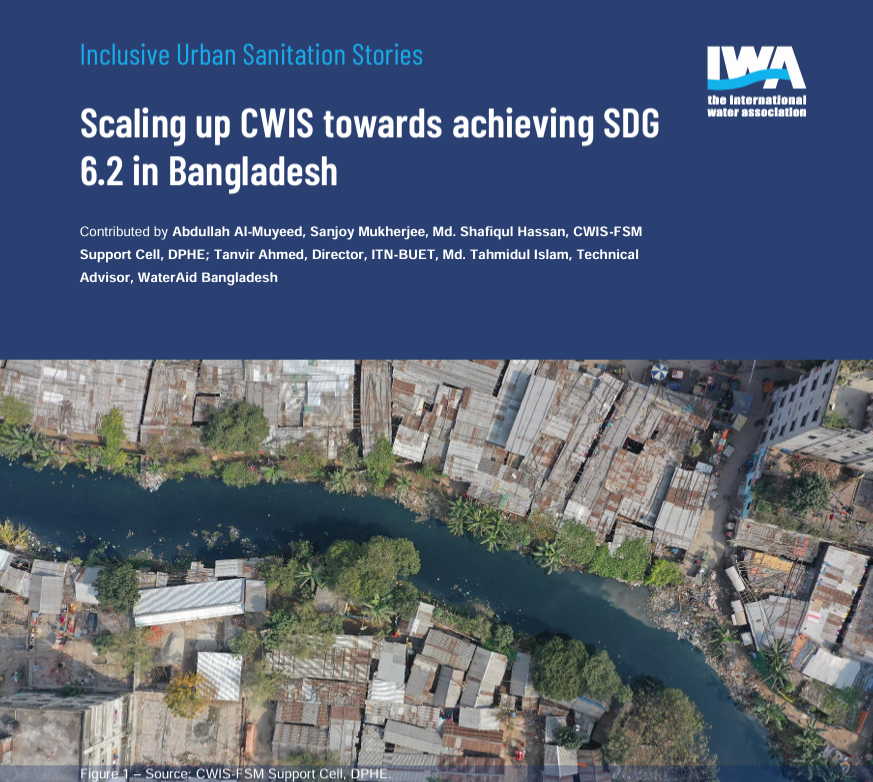Scaling up CWIS towards achieving SDG 6.2 in Bangladesh
Publisher(s): CWIS-FSM Support Cell

Series Name: Inclusive Urban Sanitation Stories
Language: English
Publication Year: 2023
Document Type: pdf
Total Pages: 11
In line with the global sanitation commitment, Bangladesh realized new sanitation challenges regarding sanitation governance to bring changes in policy guidelines. The milestone of sanitation policy reform aligning SDG 6.2 journey is the formulation of Institutional and Regulatory Framework (IRF) for Faecal Sludge Management (FSM) followed by National Action Plan (NAP) for both urban and rural setup of the country. CWIS-FSM Support Cell has been established in the Department of Public Health Engineering (DPHE) following such policy direction in a notion to scale the Citywide Inclusive Sanitation (CWIS) approach across the country and paving the development of the CWIS ecosystem through institutionalizing the three pillars of CWIS approach: Accountability, Responsibility, and Resourcing (Fig 1). The cell works with the International Training Network-Bangladesh University of Engineering and Technology (ITN-BUET) a national-level capacity-building hub for sanitation and waste management, to develop skills and provide training for city authorities on the entire value chain of sanitation and waste management, conceptualizing the CWIS approach. The cell also works on developing a digital sanitation dashboard where city profiles focusing on both FSM and solid waste management are entailed; advocates for technology that demonstrates a total sanitation value chain and provides citywide sustainable services for both faecal sludge and solid waste. Stronger advocacy led by the cell strengthens the resource mobilization efficiently with the different development partners like the World Bank, Asian Development Bank, Islamic Development Bank, Asian Infrastructure Investment Bank, and French Development Agency on sanitation and waste management to bring them on board in the urban setup of Bangladesh. The triggering effort of the cell is to establish the CWIS ecosystem in Bangladesh by 2030 through partnership and collaboration with national and international sanitation actors.
Topic
Behavior Change, Public Health, Sanitation Worker, Waste to Energy
Focus Area
CWIS
Keywords
CWIS, Capacity Building, Resource Management
Copyright
This is an open access work distributed under the terms of the Creative Commons Attribution License, which permits unrestricted use, distribution, and reproduction in any medium, provided the original work is properly cited.
No comment yet.